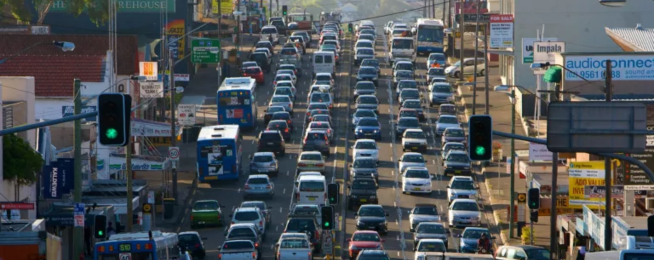Australians are warming to the idea of charging drivers directly for travelling rather than pay fuel excises and registration, recent research has found.
Direct charges based on time of day and distance travelled are known as congestion pricing, or road pricing, and have a powerful effect on reducing unnecessary travel, and as a consequence, congestion.
When people pay directly for travel, they drive less. It has been estimated that the reduction in driving resulting from universal congestion charging could delay the need for many major new roads by up to 20 years, saving taxpayers billions.
But governments have been reluctant to entertain the idea because they expect public opposition to pay-as-you go road use, even though it is accepted on toll roads.
But according to a survey by the University of Sydney Business School, a majority of Australians would like to see existing road usage charges replaced with charges more directly linked to the distance and time of day that they travel.
However, the strong public support for a new charging system is provided on condition that there is no increase in the total amount paid by travellers.
The quarterly Transport Opinion Survey conducted by the Business School’s internationally recognised Institute of Transport and Logistics Studies (ITLS) found that Seven out of ten Australians support the replacement of existing fuel excises with a charge based on distance driven.
Six in ten people surveyed said they would be willing to pay five cents for every kilometre they drive in capital cities during the weekday peak periods in return for removal of registration fees.
An end to registration fees was supported by 70 percent of Victorians while the number was 63 percent in Queensland and South Australia and 55 percent in New South Wales.
Director of the ITLS, Professor David Hensher, said there was “clearly a strong desire in the community for something to be done about the cost of road use and the growing amount of traffic congestion in our cities”.
“The findings suggest that governments will win voter backing for any move away from fixed charges such as registration fees, in favour of a distance-based peak period charge that will reduce traffic congestion while not increasing the cost of motoring,” Professor Hensher said.
The regular TOPS index of transport confidence indicates that Australians are now more confident about the future provision of transport infrastructure and services by local and national authorities than they were in 2015.
The short-term transport confidence index for local transport is now at 85, compared to 63 in March 2018 and 44 in September 2015. The long-term confidence index for Australian transport also increases to 83 from 74 in the first quarter of this year.
Become our friend
Find out more about Bicycle Network and support us in making it easier for people to ride bikes.


